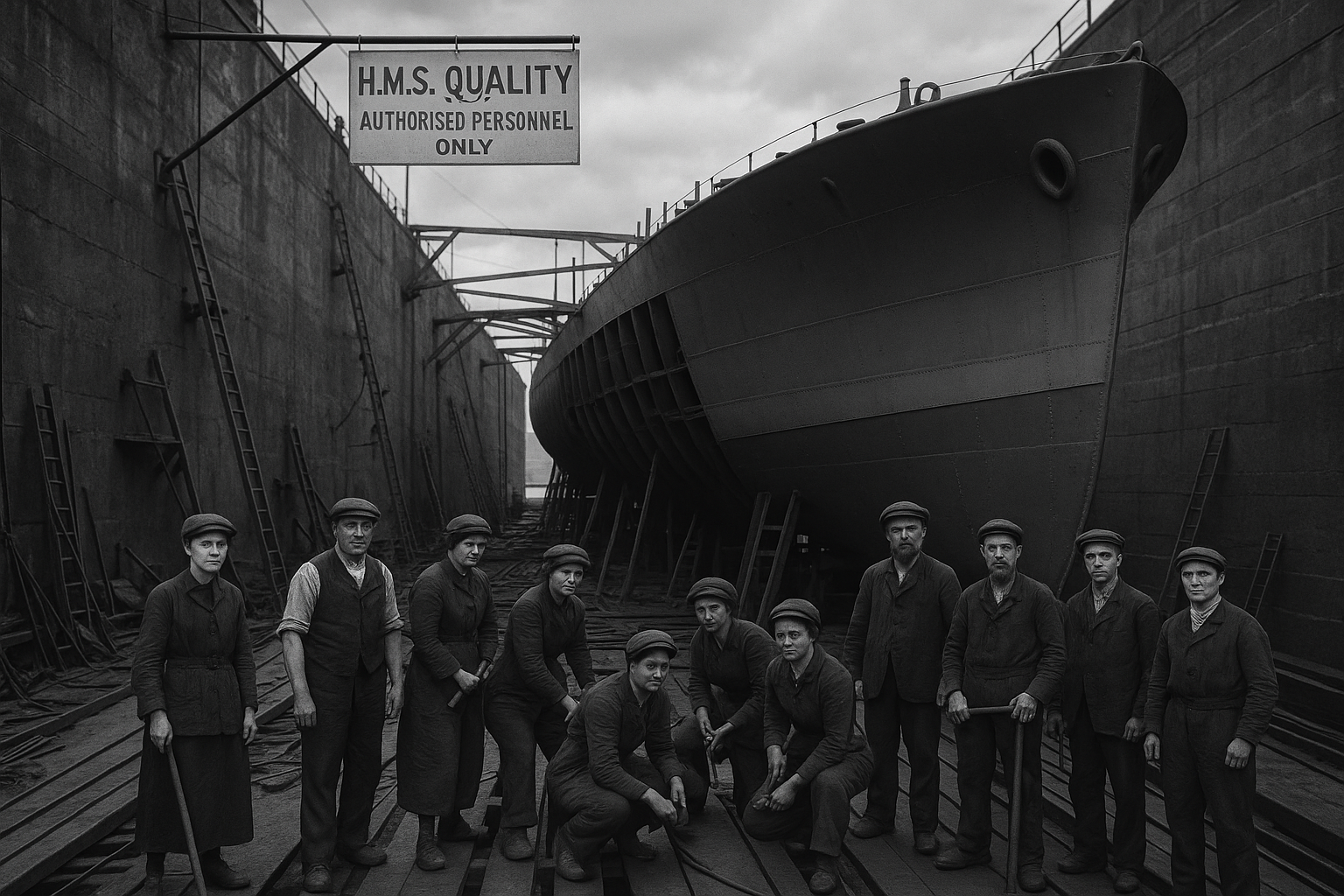
Walker Clark
Worldview Archives

“But it’s not my job…”
...or is it?
The inability to answer this question can be costing your law firm significant losses in terms of efficiency, operating expenses, morale, and lost opportunities.

Three Advantages that Small Law Firms Have in the Competition to Recruit and Retain the Best Legal Talent
The post-pandemic era of the mid-2020s has emphasized three things that small law firms must -- and can -- do to to attract and retain top legal talent.

Building a Culture of Quality in Your Organization
Introducing a successful quality assurance system usually requires profound changes in how people think about their work, how they interact with each other and clients, and how they prioritize and deliver legal services.
A culture of quality challenges traditional assumptions about how lawyers and staff contribute to the profitability of the firm and how they add value in their respective roles.
It can be challenging, but it is absolutely necessary for sustainable success in a competitive environment that has very little tolerance for poor service quality.

The Transformation of a Law Firm
Slogans and strategic plans do not build a quality culture in a law firm.
Actions do.
Deming's Fourteenth Point, "Take Action to Accomplish the Transformation," is a clarion call to organizations seeking substantial improvement in every aspect of their collective and individual performance.

Driving Fear Out of Law Firms
Law firm leaders must foster environments in which everyone feels secure and valued.
This is the ninth in a series of sixteen articles that will explore the relevance and, for some law firms the existential importance, of W. Edwards Deming's Fourteen Points, especially for small and midsize law firms.

Leadership in a Quality-Driven Law Firm
In a quality-driven professional culture, leadership takes on a unique and important role. Quality-driven law firms focus on delivering high-quality products and services to their clients, “the first time and every time," and effective leadership is essential in achieving this goal.
At the heart of quality-driven leadership is the ability to inspire and empower everyone in the firm to strive for excellence in everything they do. Leaders in a quality-driven culture understand that quality is not just a goal, but a way of doing things. They communicate this vision clearly to their teams and and colleagues and set high standards for performance and accountability.

Four Guiding Principles for Uncertain Times
Ever since we formed Walker Clark LLC back in 2002, our firm has observed four core values that have guided our advice to our clients, many of whom have implicitly incorporated these principles into their professional cultures and day-to-day workplace environments.
As we look ahead into a new decade, we remind ourselves of them, remember how they have been reliable guidelines in rapidly changing legal markets and business environments over the past 18 years, and offer them for whatever inspiration and benefit they might provide in the future.

The Value of Pessimism
Pessimism can be a valuable tool for getting things done.
The next time you say to a colleague, “Stop being so negative!” it might be helpful to make sure the benefit of their pessimistic thinking has been fully appreciated and used.
If it has, the better question is then, "How can we bring some balance to this discussion by using both pessimistic and optimistic thinking skills and behaviors?"

Don’t let the big guys scare you.
From all the attention that "Big Law" is getting in the legal press and at legal conferences, one might erroneously assume that a relatively small number of large firms are destined to rule the legal world, and that smaller firms are irrelevant to the future of the legal profession.
Don't believe it.

Your Law Firm’s (Secret) Autobiography
Almost every law firm has some type of "about us" page on its website.
Have you ever considered what an honest "autobiography" of your firm would say?
Of course, it wouldn't be for publication, but it could be more important than what you publish to the world.

Confronting Cultural Realities
"Why don't we get the results we expect?"
This is a common frustration of many law firm partners and managers. One way partners can dramatically increase the likelihood of achieving satisfactory results is to incorporate cultural due diligence into their decisions and the execution of their strategic priorities and goals.

Is your partner compensation system a strategic liability?
The legal press this week gave us two interesting examples of how partner compensation systems, and the cultural assumptions and values that they represent, can thwart the efforts of excellent law firms to achieve their strategic objectives.
Is your law firm's partner compensation an asset in your efforts to achieve sustainable business success, or is it an obstacle?

Is your law firm ambicultural?
A managing partner of a client law firm of Walker Clark recently told me, "The problem with our firm is that we have too many opportunities and too many good ideas. At the end of the day we are like dogs chasing our own tails."
This is a frequent phenomenon in successful law firms.

Adopt a "merger mentality" even when it's not a merger.
Small and mid-sized law firms are receiving lots of proposals for affiliations that are less than a traditional law firm merger. They frequently ask us, "How should we evaluate these opportunities?" We advise our clients to approach them in the same way that they would to consider a full merger.
This is one of the ten most frequently viewed posts in the Worldview Archive, with more than 10,000 visits since it was first published in 2015.

“Zero-Tolerance” Profitability: Do you always make money for your partners?
"Hyman Roth always makes money for his partners."
Forget for a moment the somewhat less desirable business practices of the Miami-based gangster Hyman Roth in The Godfather Part II. Can you say the same thing about each of your partners? Can they say that about you?
This is the fourth in a five-part series of posts that focuses on profitability in small law firms and solo practices.

Does your law firm play baseball or soccer?
This is an excellent question to ask your colleagues in your law firm.
One of the main cultural reasons why many law firms fail to achieve the success that they crave, both collectively and individually, is that the partners metaphorically play baseball, when they really should learn to play soccer (what the rest of the civilized world correctly refers to as football).

What fuels your partnership: trust or suspicion?
Trust is one of the most prevalent governance challenges facing growing professional services firms today.
This is not just a "feel-good" issue or a matter of preserving an artificial collegiality that might have been more characteristic of small law firms one hundred years ago. The level of trust that exists among partners has a direct and measurable effect on the firm's business performance.

Serving the Foreign Client
As cross-border and global business issues become more common, many small, previously locally-focused, law firms now face, for the first time, the challenges and opportunities of acting for foreign clients.
Even law firms that already do cross-border legal work encounter new and different expectations from new clients from the other side of the world, where local customs and practice may be profoundly different from the firm's previous experience with clients from neighboring countries or one of the major business centers.

